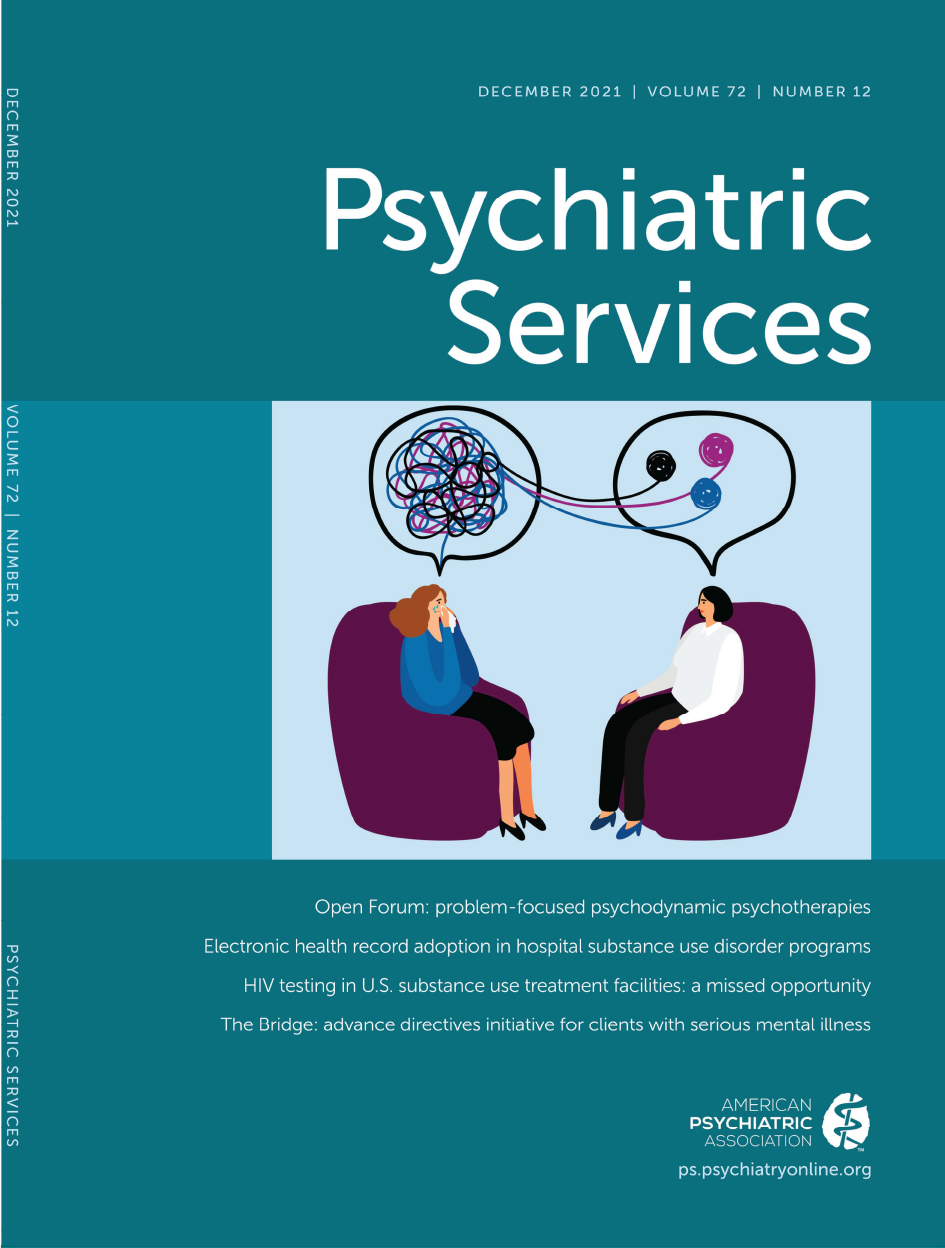The Bridge’s Advance Directive Initiative for Adults With Serious Mental Illness
The Bridge is a multiservice mental health agency in New York City that has undertaken an advance directive initiative for adults diagnosed as having serious mental illness and living in supportive housing. In addition to outpatient and community services, The Bridge provides supportive housing to more than 1,400 clients in 26 residential sites and approximately 500 scatter-site apartments. The advance directive initiative was created because Bridge clients who were admitted to health care facilities were often considered “unbefriended,” or persons who lacked the capacity to make their own medical decisions with no one to speak on their behalf, sometimes leading to unnecessary or unwanted interventions. The advance directive initiative focuses on training and supporting Bridge staff to assist clients in completing advance directive paperwork while ensuring that staff are not named as agents themselves. The initiative had three stages: research, development and implementation, and ongoing reporting and integration.
During the research stage, staff gathered information about existing models from both the literature and colleagues in the community. Many existing advance directive forms are written in technical language and are often completed in the context of preparing wills. Adaptations were needed for Bridge clients because they are living with serious mental illness and comorbid medical conditions, sometimes with lower educational achievement and cognitive impairments, and are often cut off from family and close relationships. Therefore, clients may rely on staff to assist them in understanding and completing advance directives. Direct care staff at The Bridge reported feeling unprepared to speak to clients about end-of-life care and issues of capacity without resources, support, and specialized training.
Our research informed the development and implementation of an advance directive document based on the New York State form that is written in clear, simple, and direct language to ensure clarity and understanding. It allows the client to name a health care proxy and provides basic living-will directives that can inform health care providers at a time of medical crisis when clients may be unable to advocate for themselves. The initial advance directive training was held in October 2019, and annually thereafter, and prepared Bridge housing staff to complete advance directives with all residential clients, regardless of age. The hope is that end-of-life conversations become a normal part of staff and client annual documentation. During training, staff completed their own advance directives to build comfort in having these discussions. A conversation guide and other related collateral documents were developed to provide additional support. Advance directive forms were integrated into The Bridge’s electronic health record to ensure regular data collection and easy access for staff.
The final stage of the initiative consisted of reporting on the pre- and postquestionnaires staff completed before and after the training, in addition to tracking the number of completed advance directives. During the initial training for Bridge residential staff, 81% of the staff had not completed their own advance directives. Only 20% of staff felt very comfortable discussing advance directives, which doubled to more than 40% after the training. The Bridge will continue to train new staff and provide reinforcement for existing staff on the importance of having conversations with clients about advance directives and will integrate the completion of these directives into other annual documentation requirements to ensure sustainability. The advance directive training has now been expanded to The Bridge’s outpatient clinical staff. We are also in the process of creating a monthly group for staff to process and discuss grief and loss, building on the work of this initiative to increase staff comfort in discussing death.
Before this initiative, approximately 10 Bridge residential clients had completed an advance directive. That number rose to 384 clients as of August 2021. Approximately 56% (N=215) of these completed advance directives name a health care proxy, including friends and family members. Where clients made an election, 78% (N=301) would want cardiopulmonary resuscitation/defibrillation; 71% (N=274), a breathing tube; and 64% (N=245), a feeding tube; and 77% (N=294) would want to receive intravenous fluids. A freeform text box ensures that clients have space to document their general wishes. Clients have provided a range of responses, noting the importance of family, religion, music, and the desire to breathe and speak unaided; designating items for certain people; and giving burial instructions. Some clients went into greater detail about whether they would want treatment to prolong their lives if in an uncommunicative state.
We have found that it takes minimal time to complete an advance directive, and the process of reflecting on what is important in one’s life can be a meaningful experience. Ultimately, advance directives are a way for individuals to exercise their right to self-determination and choice to ensure their voices are heard, honored, and respected.



